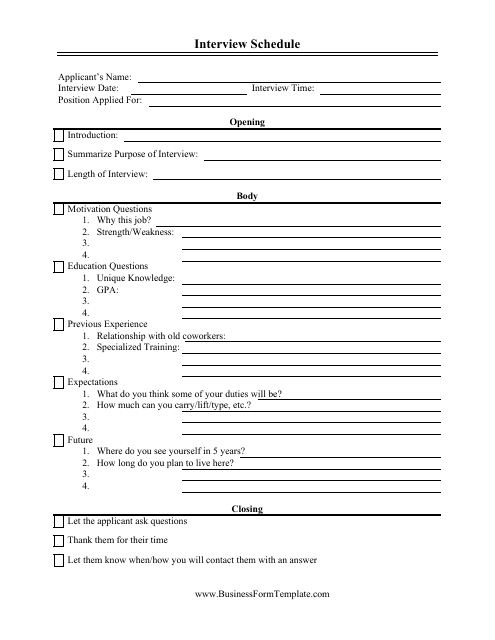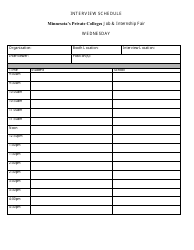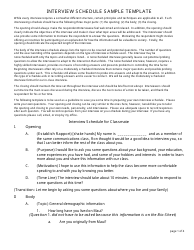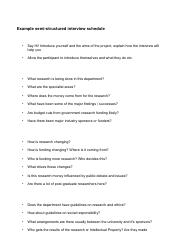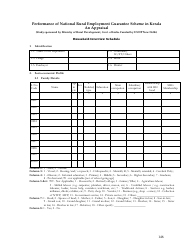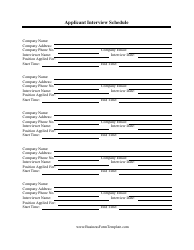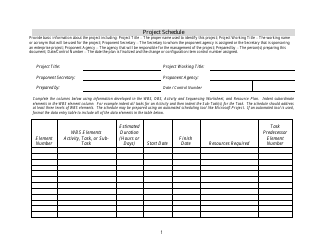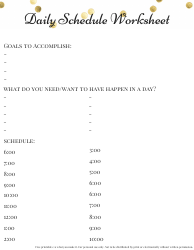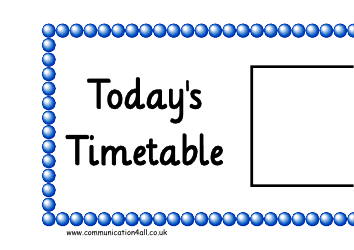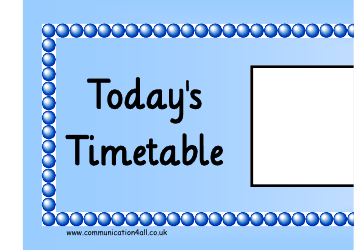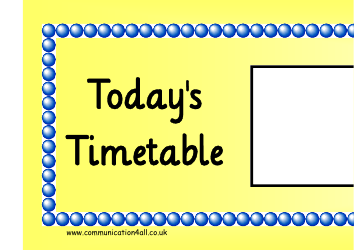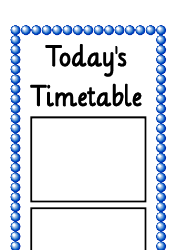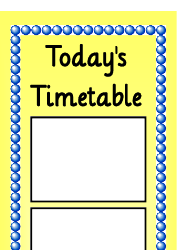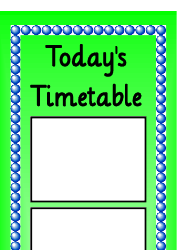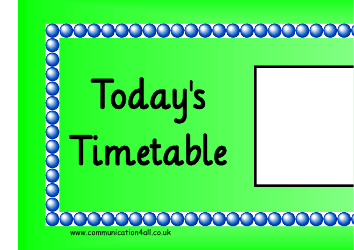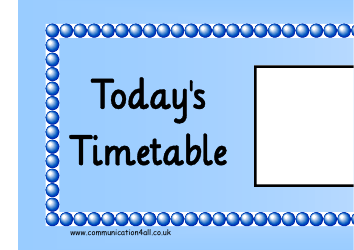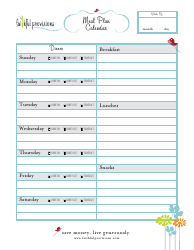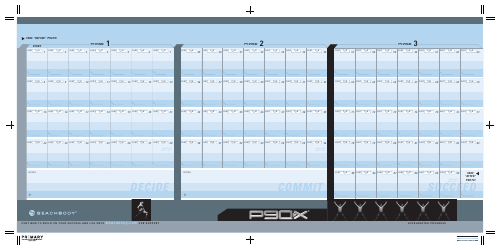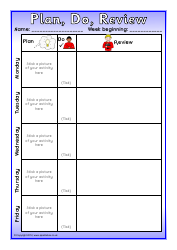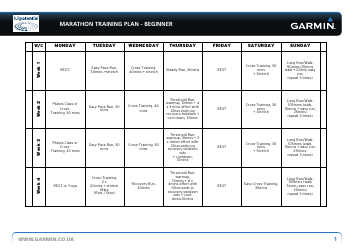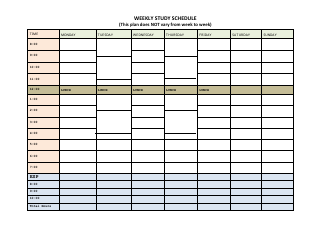Interview Schedule Template - Lines
The Interview Schedule Template helps to organize and structure interviews for various purposes, such as job interviews, research interviews, or informational interviews. It provides a systematic outline with predetermined lines to write down questions, notes, and other relevant information during the interview process. This template serves as a useful tool for interviewers to ensure that they cover all necessary topics and gather consistent data from each interviewee.
The Interview Schedule Template - Lines is typically filed by the hiring manager or the person responsible for conducting interviews.
FAQ
Q: What is an interview schedule?
A: An interview schedule is a predetermined format or template used to create a structured plan for conducting interviews.
Q: Why is an interview schedule important?
A: An interview schedule is important as it helps in maintaining consistency and fairness in the interview process. It ensures that each candidate is asked relevant questions in a systematic manner.
Q: What should be included in an interview schedule?
A: An interview schedule should include details such as the date, time, and location of the interview, the names and roles of the interviewers, a list of questions to be asked, and any additional instructions or guidelines for the interview.
Q: How can I create an interview schedule?
A: To create an interview schedule, start by determining the objectives of the interview and the key areas you want to assess. Then, create a list of questions that align with these objectives. Assign time slots to each question and allow for breaks if needed. Finally, format the schedule in a clear and organized manner.
Q: Can an interview schedule be customized for different positions?
A: Yes, an interview schedule can and should be customized for different positions. The questions and evaluation criteria may vary depending on the job requirements and the level of the position being interviewed for.
Q: What are some best practices for conducting interviews using an interview schedule?
A: Some best practices for conducting interviews using an interview schedule include preparing well in advance, reviewing the candidate's resume and application beforehand, asking open-ended and behavioral-based questions, actively listening to the candidate's responses, taking notes, and providing clear explanations of next steps in the process.
Q: Can an interview schedule be modified during the interview?
A: While it is generally recommended to stick to the interview schedule as much as possible to maintain consistency, some flexibility can be allowed to adapt to the candidate's responses or unexpected circumstances. It is important to use judgment and make necessary adjustments without compromising fairness.
Q: Are there any legal considerations to keep in mind when using an interview schedule?
A: Yes, there are legal considerations to keep in mind when using an interview schedule. It is important to ensure that the questions asked are job-related and non-discriminatory. Questions regarding a candidate's race, religion, gender, nationality, or disability should be avoided unless they directly relate to the job requirements.
Q: How can an interview schedule help in the decision-making process?
A: An interview schedule can help in the decision-making process by providing a structured framework for evaluating candidates. It allows for a systematic comparison of responses, facilitates consistency among interviewers, and helps in identifying the most suitable candidate based on the predetermined criteria.
Q: Can an interview schedule be used for different rounds of interviews?
A: Yes, an interview schedule can be used for different rounds of interviews. It can be adapted and modified as needed for initial screenings, follow-up interviews, or final selection stages to ensure a consistent and fair evaluation process.
